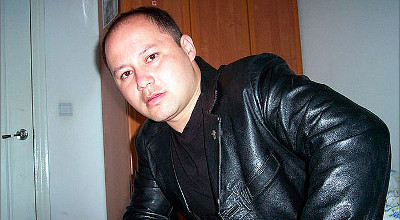Persecuted Christian Dashes From Prison to Border
For 90 days last fall, Makset Djabbarbergenov lived in a Kazakh prison cell, under threat of deportation to his native Uzbekistan to face almost-certain years of harsh jail time.
His alleged crime: Leading small Christian communities in house churches without official registration. By 2007, this had made “Pastor Makset” a wanted criminal, and he fled across the border into Kazakhstan to escape arrest. By 2009, he and his family had won refugee status there from the United Nations High Commissioner for Refugees, or UNHCR. So far, Kazakhstan has refused to recognize the family’s refugee status.
Last year, Uzbekistan bumped up the convert pastor’s “criminal accusations” to charges of terrorism, and demanded the Kazakh government send him back home to face trial and a potential 15-year prison sentence.
His pregnant wife, Aygul, and their four young sons were left watching wide-eyed as the Kazakh police arrested him in their Almaty home at noon on Sept. 5. It would be three months before they saw each other again.
In late December, a few weeks after they had flown to safety and a new life in Europe, they told the story of their family’s faith ordeal in a series of interviews with World Watch Monitor. Their location is being withheld to preserve their security.
Always, the dream was the same.
“Ever since I became a Christian nearly 13 years ago, I kept having this dream that I was being chased by people trying to capture me, and every time I would escape.”
Makset looked out the frosty apartment window. Fresh snow covered the street outside.
Always the same dream, he said, until one day in September.
“The day before I was arrested in Almaty, when I again dreamed about being chased, this time I got caught.”
It was his wife, however, who first realized it was about to happen.
It was Sept. 3. Aygul’s cell phone rang. The number was unfamiliar. Someone on the other end was saying her sister was being held by the police for using a stolen mobile phone. He was asking her to come to the station.
Aygul had no official identification to get her into the police station. So, she arranged with her grown niece to go together. On the morning of Sept. 5, Aygul stayed in the car, praying, while her niece went in to see her mother.
That’s when the police swarmed around the car and ordered Aygul inside. Questioning her for 45 minutes, they ordered her to write down all her contact information, and then took her fingerprints and some photos.
“Now we need your husband,” they announced. Quickly, she called Makset before the police escorted her back home.
She broke into tears as the police took him away. “Oh, we just want his fingerprints!” they said, sounding glib. For the rest of the day, she said, “Our oldest son kept calling me during every break at school, worried and asking if his Dad had come back yet.”
At 5 p.m., her phone rang again. This time, it was Makset.
“This is very serious. Call everyone you can. Tell them what is happening to me.”
Then, nothing. The police took his phone. It was the last Aygul would hear from her husband for six days.
Through tears, Aygul started calling everywhere for help: the UNHCR office in Almaty, members of their Almaty church, and Christian friends all around Central Asia.
Within two days, the UNHCR staff confirmed to her that Uzbekistan was insisting Makset be extradited for trial. On Sept. 7, she learned a Kazakh court had remanded him earlier that day to prison for 40 days, while his case was under review.
“The first day they wanted to beat me, and the police were very rude to me,” Makset said, “but they didn’t mistreat me physically.”
“Those first days after my arrest were the hardest,” he said. “It was an emotional time, and everything hit into my heart. I was joyful on the outside, but I was very stressed inside. I was thinking about my family: What will happen to our children if I’m sent to Uzbekistan?”
And in answer, he said, he heard God in his prayers: I will not send you back to Uzbekistan.














































